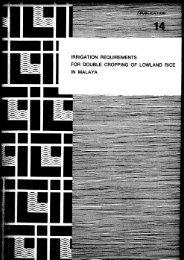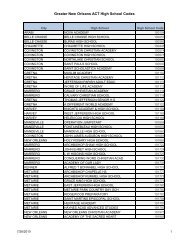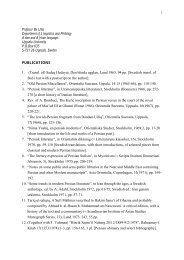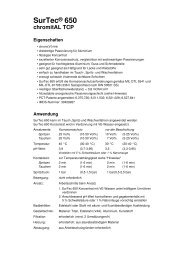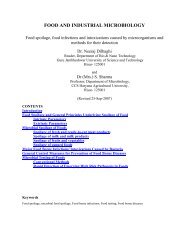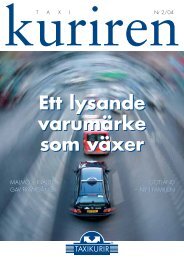On the Future of Indigenous Traditions - Munin
On the Future of Indigenous Traditions - Munin
On the Future of Indigenous Traditions - Munin
Create successful ePaper yourself
Turn your PDF publications into a flip-book with our unique Google optimized e-Paper software.
more. These realities portray more or less a broader picture <strong>of</strong> <strong>the</strong>ir social, cultural<br />
and political being, but <strong>the</strong>re are weaknesses too.<br />
<strong>On</strong> <strong>the</strong> o<strong>the</strong>r side <strong>of</strong> <strong>the</strong> Adivasis reality, particularly if we look at <strong>the</strong>m from <strong>the</strong>ir<br />
own side again, we find a good number <strong>of</strong> those issues that have become <strong>the</strong>ir<br />
weakness and limitations: Among which are, (i) a difficult legal system <strong>of</strong> <strong>the</strong> state<br />
which is ei<strong>the</strong>r not understood or too complicated so simple Adivasis get trapped in it<br />
for no fault <strong>of</strong> <strong>the</strong>ir own; (ii) modern or mainstream ways <strong>of</strong> life orientation, mostly<br />
influenced by Hindi and Hinduised culture; a perspective in <strong>the</strong>ir education centred<br />
around a rational way <strong>of</strong> thinking results in defiance <strong>of</strong> <strong>the</strong>ir own knowledge sources.<br />
Yet on <strong>the</strong> o<strong>the</strong>r hand, conversion to Christianity also has played a big role in shaping<br />
<strong>the</strong>ir way <strong>of</strong> thinking, including a divide caused between those converted and those<br />
not; (iii) <strong>the</strong> economic factor which led to large scale immigration in <strong>the</strong> preindependent<br />
era, i.e. to Assam and Bhutan to work for <strong>the</strong> tea gardens, to Punjab as<br />
cheap laborers and to Andaman and Necobare Islands as timber fellers, which has not<br />
healed <strong>the</strong> Adivasi community but fur<strong>the</strong>r aggravated <strong>the</strong>ir situation. 132 (See map 3)<br />
<strong>On</strong> <strong>the</strong> o<strong>the</strong>r hand, in post independent India, <strong>the</strong> qualified Adivasi individuals have<br />
immigrated to cities and towns to avail reserved government jobs for <strong>the</strong> Scheduled<br />
Tribes. Yet, among <strong>the</strong>m <strong>the</strong> ‘unqualified’ migrate is in <strong>the</strong> metropolis as domestic<br />
workers, and unskilled workers for <strong>the</strong> lowest paid jobs; While in <strong>the</strong>ir home region<br />
<strong>the</strong> ‘tribal economy’ system has fur<strong>the</strong>r deteriorated allowing outside patty businesses<br />
to take roots, developing into a very intact network <strong>of</strong> a non-Adivasi business control<br />
market with <strong>the</strong>ir monopoly; (iv) with <strong>the</strong> change <strong>of</strong> demography within <strong>the</strong> state, an<br />
increasing dominance <strong>of</strong> non-Adivasis here, also introduced different names <strong>of</strong> <strong>the</strong><br />
places 133 which ones had Adivasi names changes <strong>the</strong> whole character <strong>of</strong> <strong>the</strong><br />
geographical areas here; (v) in <strong>the</strong> absence <strong>of</strong> <strong>the</strong>ir own Adivasi languages, Hindi,<br />
Bengla, or Oriya languages have become <strong>the</strong> ‘link’ languages and have become more<br />
dominant than <strong>the</strong> Adivasi languages, making it a stigma for <strong>the</strong>m to speak <strong>the</strong>ir own<br />
132 Kora Raji a documentary film made by Biju Toppo illustrate <strong>the</strong> Adivasis who were taken to Assam<br />
and Bhutan, today are not regarded as Scheduled Tribes, but “Tea Tribes” which does not give <strong>the</strong>m<br />
any status for any constitutional benefit while tea export is a fading business for <strong>the</strong> tea industry here.<br />
Nor is <strong>the</strong> situation <strong>of</strong> Adivasis taken to Andaman and Nicobar Islands as timber fellers, today as <strong>the</strong><br />
timber logging has been completely banned by <strong>the</strong> Supreme Court order, <strong>the</strong>y have lost <strong>the</strong>ir jobs and<br />
struggle for livelihood. (See map…) Biju Toppo, “Kora Raji: An Episode <strong>of</strong> Jharkhand Diaspora ”,<br />
AKHRA, Jharkhand, n.p.<br />
133 Nabin Mundu, “Munda Sabha Ranchi Chikate?” Senra Seteng III/2 (October, 2006): 7.<br />
84





